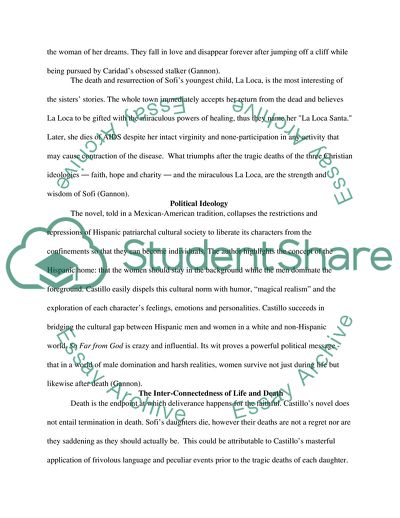Cite this document
(So Far from God Essay Example | Topics and Well Written Essays - 1750 words, n.d.)
So Far from God Essay Example | Topics and Well Written Essays - 1750 words. https://studentshare.org/history/1771922-mexican-history
So Far from God Essay Example | Topics and Well Written Essays - 1750 words. https://studentshare.org/history/1771922-mexican-history
(So Far from God Essay Example | Topics and Well Written Essays - 1750 Words)
So Far from God Essay Example | Topics and Well Written Essays - 1750 Words. https://studentshare.org/history/1771922-mexican-history.
So Far from God Essay Example | Topics and Well Written Essays - 1750 Words. https://studentshare.org/history/1771922-mexican-history.
“So Far from God Essay Example | Topics and Well Written Essays - 1750 Words”. https://studentshare.org/history/1771922-mexican-history.


